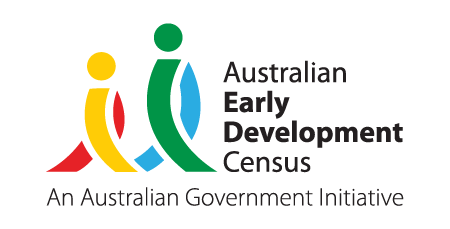On this page
Schools and early childhood services can use results from the Australian Early Development Census (AEDC) to gain a better understanding of how well children have developed by the time they start school. This can help them tailor their efforts and planning to meet the needs of children and families.
Children who are thriving when they start school are likely to continue doing well. If children fall behind in their learning, they’re more likely to stay behind.
About the AEDC
The AEDC offers a snapshot of children’s development by the time they start school and serves as a reliable predictor of children’s wellbeing and education outcomes. It looks at 5 developmental domains and results are reported at a national, state, community and school level.
Find SA results and resources on this website or access national AEDC data.

Learn more about the AEDC, including the 5 domains of early childhood development, what they measure and how to understand the data.
School results
You can access a school profile if:
- your school has participated in the data collection and
- data was collected for 6 or more children (without special needs).
The school profile provides in-depth information about the cohort of children captured in the AEDC data collection at the school, including:
- child demographic characteristics
- transition to school information
- school’s AEDC domain and summary indicator results over time, including the latest collection year
- state and national results for comparison
- information about how to use your school’s results
- links to other AEDC resources.
How to access your school profile
If your school has participated, you can access your AEDC school profile by:
- downloading it from the data collection system during the collection period
- using a secure link emailed to principals at the time of national data release
- contacting the national AEDC helpdesk on 1800 092 548 or helpdesk@aedc.gov.au for a copy of your report.
Department schools can find more information on how to access your school profile (staff login required).
Sharing your school’s results
School profiles are not published publicly. Principals may choose to share and discuss AEDC results with key stakeholder in the school community including:
- school staff
- early years teachers
- early years partnerships
- early childhood service providers
- local secondary schools
- local government
- school community (for example, a school council)
- school principal networks/clusters.
Find out more about the important role schools play in the early years.
Community results
Results from all participating schools are summarised into community profiles. These profiles provide valuable insight about the communities where children live.
Community profiles present AEDC results for child populations across suburbs and geographic areas usually equivalent to a local government area. They include:
- demographics and characteristics of children in the area, to provide context for the results
- similar information to a School Profile but for children living in the community, regardless of where they attend school
- data on the proportion of children developmentally on track, developmentally at risk or developmentally vulnerable in each domain - physical health and wellbeing, social competence, emotional maturity, language and cognitive skills (school-based) and communication and general knowledge
- data showing the proportion of children developmentally on track on all 5 AEDC domains, developmentally vulnerable on 1 or more and 2 or more domains.
You can review community profiles relevant to where your enrolled children live, alongside other data. This can help understand the children’s contexts for informed planning.
Search for community profiles on the AEDC Community data explorer.
For more information read:
- about the AEDC domains fact sheet
- about the summary indicators fact sheet
- accessing community results
- understanding AEDC community boundaries.
Guidance for using AEDC results
Education and care facilities are using AEDC results alongside other data for informed planning leading to positive outcomes for children.
The reporting, publication or analysis of AEDC data and results must be in accordance with the AEDC data guidelines.
The following resources can help understand and use AEDC results in everyday practice.
User guide for schools and early childhood services
- AEDC user guide for early childhood services and schools guides thinking about responses to AEDC data, principles and practices for local action
- Using your school’s AEDC data fact sheet to interpret and use school results
Enhancing your planning
- Value of the AEDC for educators (PDF 4 MB) steps through ways in which educators can enhance their planning with community data
- Value of the AEDC for education leaders (PDF 1 MB) steps through the way the AEDC supports data driven planning
- Choosing effective interventions – AEDC fact sheet provides information to support planning
Domain guides and curriculum connections
AEDC domain guides were developed in collaboration with The Kids Research Institute, Western Australia and New South Wales Departments of Education.
Domain guides and key curriculum connections fact sheets link to the National Quality Standards , Early Years Learning Framework , Australian Curriculum and Australian Professional Standards for Teachers and Principals to help plan within local community contexts.
Supporting early childhood development fact sheets are designed to help support parent engagement in children's early development and learning.
Professional learning
- AEDC professional learning program (plink login required) – on the Department for Education's professional learning platform
Improvement tools and guidance
- Government schools and preschools – check AEDC information on EDi (staff login required)
- Association of Independent Schools South Australia
- Catholic Education for South Australia Schools
- Quality improvement planning information on the national AEDC website and ACECQA website
- AITSL Spotlight – Strengthening parent engagement to improve student outcomes supports school and early learning settings in parent engagement for which the AEDC can provide valuable contextual information
- Transitions to school advice by ACECQA
- Evidence for Learning website helps identify evidence-based interventions that align with each of the 5 AEDC domains
- Investigating and accessing funding guideline helps with grant applications
Practical examples
AEDC stories from schools and communities show practical examples:
You can watch one of the video stories below.
Video: Lower Mid North education partnership story (4:13)
Video transcript – Lower Mid North education partnership story

Got a story to share?
If you have an AEDC story to share, we'd love to hear from you.
How the AEDC team can help
We're here to help! Contact our team for help with:
- understanding your community results
- understanding demographic factors that may be making a difference
- using the AEDC data.
Resources for schools and early childhood services
For educators to support health and wellbeing:
- Be You – information, resources and strategies for educators about helping children and young people achieve their best possible mental health
- Gowrie SA – supports professional learning, inclusion and parenting
- Nature Play South Australia support supports educators in outdoor learning
For families from our department:
- Early Years SA app – trusted information about child health, learning, development and wellbeing from birth to 5 years
- GreatStart – activities for learning with the child
- Our Learning SA – activities for learning from home
From the Australian Government:
- Needs assessment practice resource (Australian Institute of Family Studies) (PDF 1.9MB)
- Learning potential – resources for schools to share with parents
- Australian Student Wellbeing Framework (Australian Department of Education)
Parenting resources and services:
- Parenting SA – information and support including ‘parent easy guides’
- Families Growing Together (Department for Human Services program) – workshops for families about parenting
- Raising Children Network – parenting videos, articles and apps backed by Australian experts
- Gowrie SA parenting programs
- Words Grow Minds supports early brain development through words – SA government-funded website with family resources, early years directory, community events and more
- SPICE playgroups – supported playgroups in Catholic education
- Smith Family – provides wholistic long-term support for disadvantaged children through education
- SNAICC (National Voice for Aboriginal and Torres Strait Islander children) – works to improve outcomes and opportunities for Aboriginal and Torres Strait Islander children and strengthen the capacities of families across Australia
Data and research:
- Australian Bureau of Statistics – for demographic data to understand community context
- Preventive Health SA Open Data Portal – access to a wide range of data regarding the health and wellbeing of the South Australian community
- PHIDU Social Health Atlases – for demographic data to understand community context
- Australian Child and Youth Wellbeing Atlas – maps information on children and young people aged 0 to 24 in communities across Australia
- .idcommunity – demographic, economic, and social profiles by council area
- Australian Institute for Teachers and School Leadership (AITSL) research and evidence, including Spotlight evidence summaries such as on wellbeing in Australian schools


